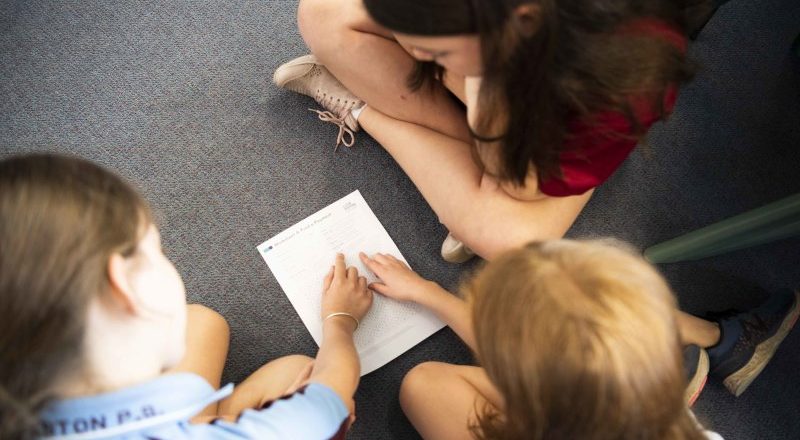Kids’ financial literacy in focus as new school program kicks off
A new financial literacy program aimed at Australian schools is hoping to help kids learn money lessons for life and make informed financial decisions amid a worrying decline in financial know-how among the broader population.
The program, Talk Money from the Ecstra Foundation, helped over 100,000 kids in 2022, with pilot data showing it has already made a positive impact on students’ money attitudes and skills. As the 2023 school year approaches, registrations for terms one and two are strong.
The latest HILDA report released by the University of Melbourne concluded that there are worrying declines in financial literacy across the Australian population – most pronounced for young people.Credit:Ecstra Foundation
Sydney mother of four Cristy Olmos learnt of the program from her 12-year-old son who recently attended a workshop.
“He came home one day talking about the program and the topic was ‘how to save money’. I thought this is good that they’re introducing this in schools,” she says. Olmos recalls learning about banking at school when she was young.
”We had a bank come into the school; we’d deposit a dollar into a bank account each week. We had an opportunity at school to learn, I loved having that passbook.“
As an increasingly cashless society, Olmos is concerned about her children’s perception of money as they simply see parents tap plastic and the money comes through.
“There isn’t the opportunity to engage with them financially, or how to manage money. You really have to go out of your way to do this. I see this program as invaluable. I’m glad schools see it as important.”
Olmos’s two other teenage children who are in year 9 and year 10, work weekends. They have asked their mother for access to their own accounts and credit cards, though she is worried they have lacked financial education throughout their schooling.
“This frightens me. I’m worried they’ll just start tapping away. I’ll try to ensure they only withdraw minimal amounts attached to a card. They haven’t been through any money program. It would be really beneficial for them right now while they’re still in high school.”
Ecstra’s chief executive, Caroline Stewart says, ensuring better access to quality and independent financial education is crucial.
The prevalence of tap and go payments has some parents worried about their kids’ perceptions of money.Credit:Louise Kennerly
“In a challenging economic climate with increasing concerns about cost of living; providing young people with foundational money skills at certain key life stages will help them now, and prepare them for their financial futures,” she said.
The latest HILDA report released by the University of Melbourne concluded that there are worrying declines in financial literacy across the Australian population, and these are most pronounced for young people.
Ecstra’s workshops are aligned with the Australian curriculum and the National Consumer and Financial Literacy Framework, and are provided at no cost. They are delivered by trained facilitators in person in classrooms, with no commercial links or product promotion involved.
Feedback from students and teachers has been very positive with 88 per cent of teachers saying their students’ knowledge of money improved after attending the workshops.
“The course content aims to engage students of different ages and backgrounds. Years five and six start with ‘talking about money,’ such as having money conversations, learning how to build savings habits, the difference between needs versus wants and the digitisation of money,” adds Stewart.
Older years cover the many influences on spending, payment options available and strategies for setting and achieving their financial goals.
Allan Dougan, CEO of the Australian Association of Mathematics Teachers (AAMT) and member of the advisory group said financial literacy is an essential part of young people’s learning and something that we have to get right.
“Programs such as Talk Money allow students to explore the financial thinking and decision-making required in their complex world. Teachers can choose the resources and workshops that best fit their scheduling and student needs.”
The Money with Jess newsletter helps you budget, earn, invest and enjoy your money. Sign up to get it every Sunday.
Most Viewed in Money
From our partners
Source: Read Full Article



